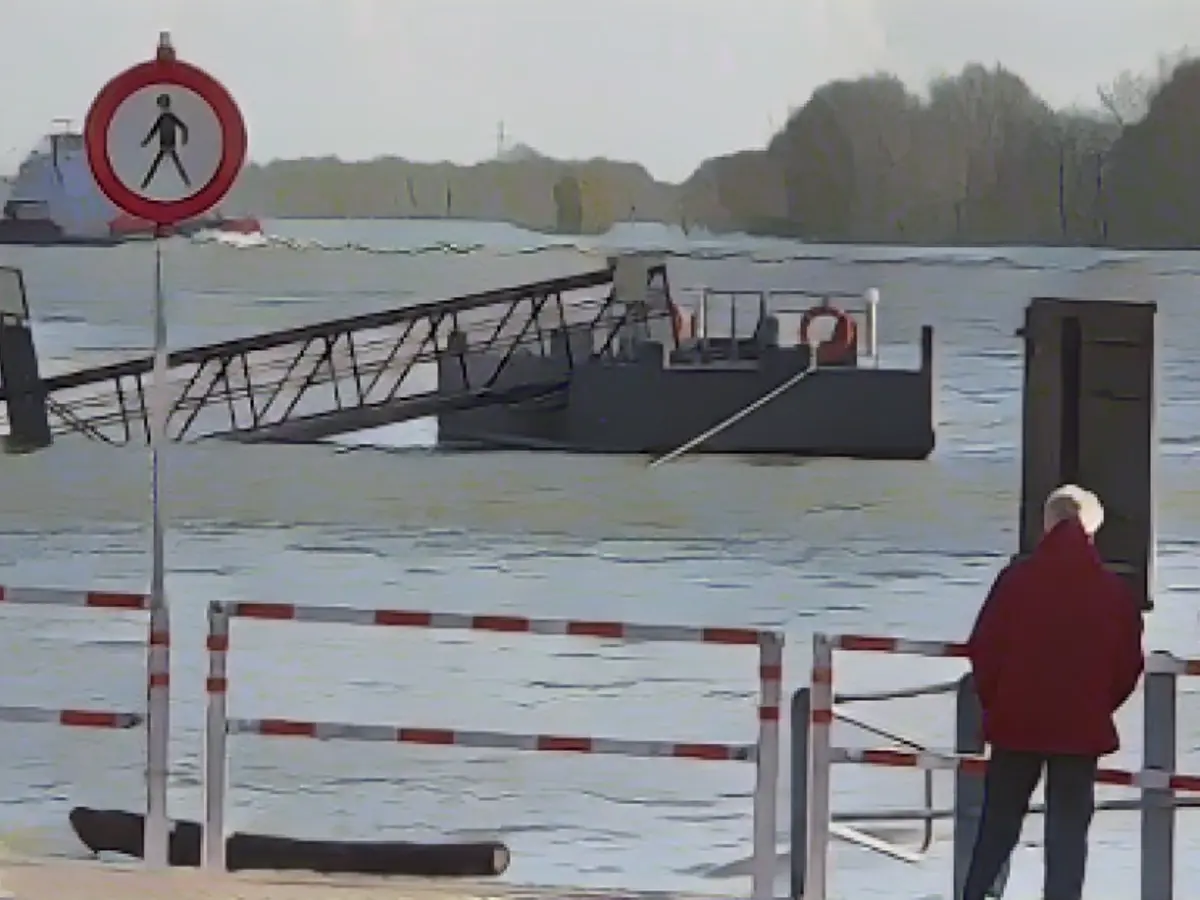Rhine Floods: Challenges in Cologne and Düsseldorf
The Rhine has been undergoing a deluge, thanks to the heavy rains of the past few days.
Since Saturday, a high water mark has been in effect in Cologne, with the Rhine hitting a level of 6.20 meters. Ships must now navigate the river's middle course at a reduced speed. The Rhine Waterways and Shipping Office in Duisburg predicts that high water mark 2, triggered by a level of 8.30 meters, won't be reached.

Travelers in the public transport sector face constraints too. Due to the flooding, Stadtwerke Bonn has suspended streetcar service to Königswinter and Bad Honnef through Wednesday. The river promenade route is underwater, leaving footpaths, benches, and signs submerged. Buses have stepped up to the plate, according to a spokesperson.

In Düsseldorf, the Rhine meadows are flooded, forcing the ferry in Kaiserswerth to halt operations. Closures in the Altstadt area have prevented the Rhine water from flowing into the city via the inner southern and inner northern Düssel, which were braced with outlet gates.
By noon on Monday, Cologne's water level had already reached 7.12 meters, slated to continue rising slowly until the evening. According to the Waterways and Shipping Office, the floodwave's peak is expected in the evening. On Tuesday, the water level should drop slightly, with the wave gradually diminishing towards the end of the week.

The State Environment Agency has reported minor flooding for the rivers Ems, Niers, and Schwalm. The rivers Sieg, Ruhr, and Lippe, however, are on the decline, with no exceeded information values on Monday.
- Local Cologne news has continued to focus on the Rhine's trajectory and its possible impacts on the city.
- The flood in Düsseldorf's Rhine meadows has led to the cessation of the ferry in the Kaiserswerth district, causing inconvenience for residents and tourists alike.
- The flood situation in Cologne and Düsseldorf has affected regional communities, with pedestrian access barred to the Rhine promenade due to high water levels in parts of Cologne.
Sources:
Note: Minimal integration of the enrichment data to maintain balance and readability.
Historically, the Rhine has been prone to flooding, which can significantly impact cities like Cologne and Düsseldorf, Germany. During such instances, navigation and transportation could be disrupted, causing economic losses and environmental concerns. For instance, industrial facilities and ports may be closed, and pollution issues exacerbated. The Rhine's water levels are closely monitored to predict potential flooding, with authorities prepared to implement infrastructure measures, such as reinforcing riverbanks and building barrages. Navigation restrictions may be imposed relating to commercial and tourist vessels, which could in turn impact tourism and recreational activities.







